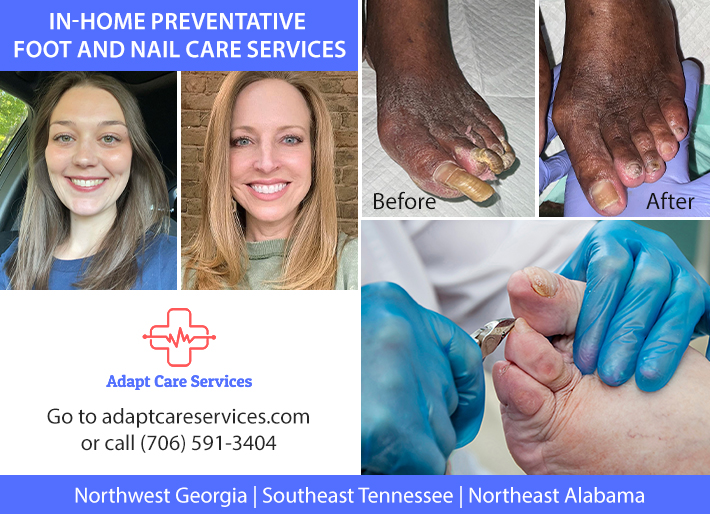
No matter how much is done in preparation the baby’s arrival, most new moms will have lots of questions on how to take care of the newest addition in the first few weeks after birth – as they should! Caring for a newborn isn’t easy, but it’s also an incredibly rewarding experience that makes all the hard work worthwhile. While there may be moments that seem overwhelming, your pediatrician is always there to answer any and all questions you may have.
Dr. Mark Boudreau, a pediatrician with Atrium Health Floyd Pediatrics Shorter Ave., gives his advice on some of the most common questions new moms have during the first few weeks after birth.
Nutrition
Whether you need to eat more postpartum than you typically would depends on whether you breastfeed. While there are well-documented benefits of breastfeeding – including bonding, nutrients, stronger immunity, and perhaps weight loss – Dr. Boudreau avoids pressuring new moms.
“While breastfeeding has many benefits, it can often be challenging,” Dr. Boudreau said. “The most important thing to a pediatrician is that babies are being fed. Babies need a lot of calories for their brains to develop properly. Modern formulas, while not perfect, are a good alternative to breastfeeding.
Moms who breastfeed burn an extra 500 calories a day producing milk. So, they need to consume about 2,300-2,500 calories daily to ensure an adequate volume of milk supply for their newborn. They also should drink as much water as possible.
When breastfeeding, what you eat directly impacts your baby, so prioritizing eating healthy foods is beneficial for both mom and baby. Foods to avoid include processed meats and items high in mercury, like some fish. Caffeine should be consumed in small amounts because it can pass through breast milk and lead to irritable babies with poor sleep patterns. And drinking alcohol is strongly discouraged.
“Eating a diet high in Vitamin D can also be beneficial,” Dr. Boudreau said. “It is recommended that all babies who are exclusively breastfed have their diet supplemented with Vitamin D. Make sure to ask your pediatrician about this if your baby isn’t on vitamin D drops already.”
Fitness
Exercising after delivery can help you strengthen core muscles, relieve stress, improve your mood, and lose weight. For vaginal deliveries, exercise recommendations, and how quickly after birth moms are able to resume exercise, depends on the level of any vaginal lacerations (or tears) that a mom had during the delivery.
It is generally recommended that moms see their OB/GYN four to six weeks after delivery for a postpartum exam, during which providers inspect any lacerations and can clear someone to begin slowly increasing their activities and exercise. It’s important not to begin strenuous exercise until being cleared by your physician, which is typically six weeks after delivery for both vaginal and c-section deliveries.
Another physical adjustment for moms is changes to the body postpartum. Some moms shed baby weight fairly quickly while others take much longer. It is important to remember that your body underwent major changes to bring new life into the world. Be patient with your body. If you eat healthy and stay active, change will come.
Support
Physical changes might take some time to occur, but lifestyle changes tend to happen overnight. Babies tend to sleep more during the day, often leaving parents sleep-deprived during the night.
“Babies are not able to store up reserves of energy like adults. Because of that, they need to be fed even at nighttime,” Dr. Boudreau said. “Once babies are three months old, most have the reserves to sleep through the night, although they will still wake up once or twice a night to eat. Most babies will consistently sleep through the night by the time they are 6 months old.”
Don’t be reluctant to ask for help if support from family and friends is available. Let them step in and assist so you can take care of yourself and get some rest – looking out for your own health is important in order to take the best possible care of your baby.
Mental Health
Baby blues and postpartum depression are completely normal and nothing moms should be ashamed of – in fact, according to the American Psychological Association, nearly 1 in 7 women experience symptoms of postpartum depression alone, with baby blues being even more prevalent. It’s important for moms to recognize the symptoms and have open conversations with their doctor in order to develop an appropriate care plan.
Baby blues, which can occur from a few days to a few weeks after delivery, might include mood swings; a lot of anxiety or sadness; irritability; feeling very overwhelmed; crying a lot; changes in appetite; sleep disturbances; and poor concentration.
Postpartum depression symptoms are more intense and can last longer. Some women have it from weeks after to a year after birth. Symptoms can affect the mom’s ability to take care of her infant and do daily activities. Check with your OB/GYN or pediatrician if you are concerned about how you feel.
New parents should be open to learning as they go. No two children are alike and there are no cookie-cutter approaches to parenting. You and your newborn must learn from each other, taking the positives with the negatives.
Atrium Health Floyd offers a virtual support group for moms. It could be the perfect place to find important resources or even another mother you can talk to.













